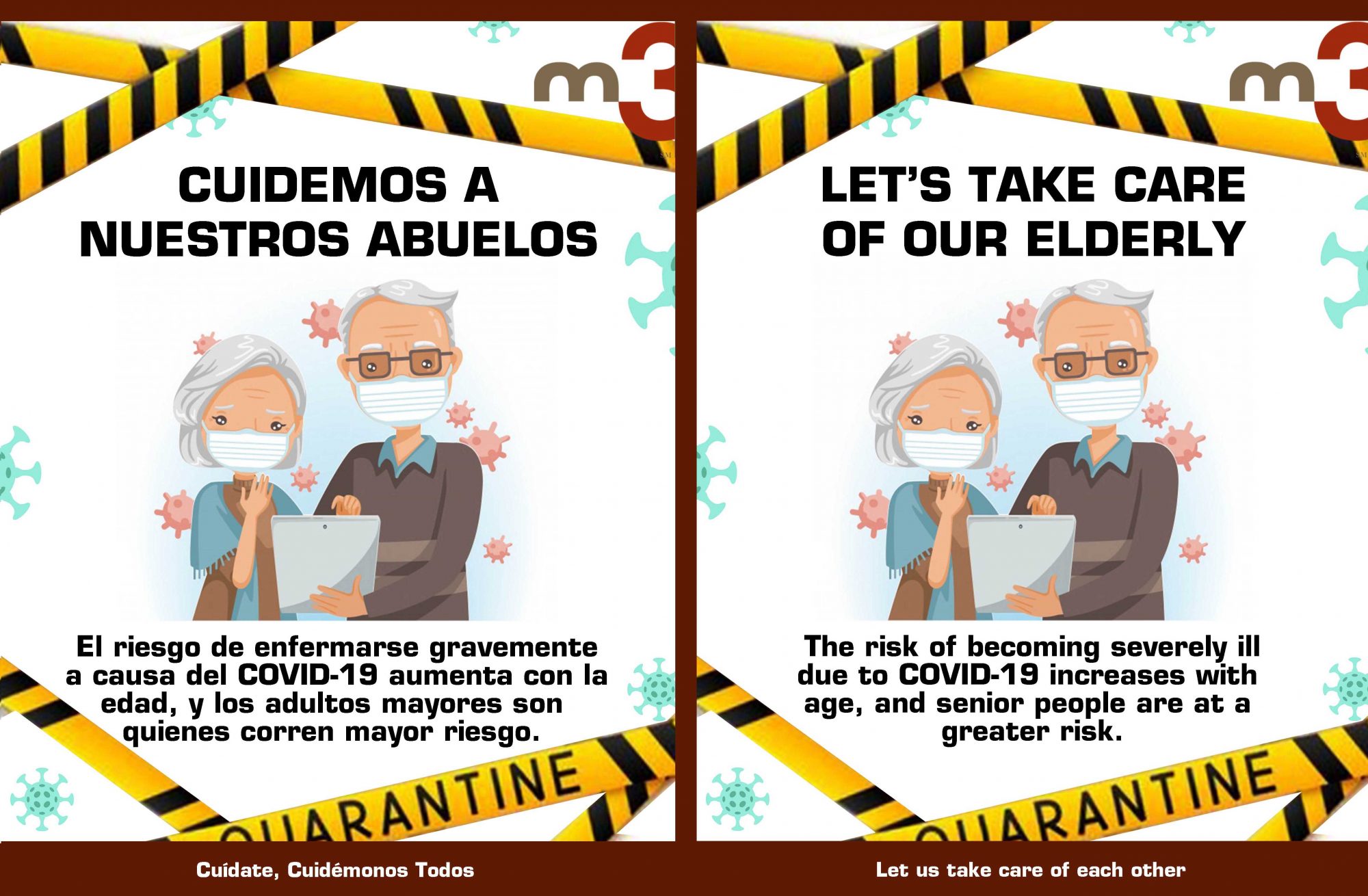The risk of becoming severely ill due to COVID-19 increases with age, and senior people are at a greater risk.
For example, people who are in their fifties have a greater risk than people in their forties. Likewise, people in their sixties or seventies are more vulnerable than people in their fifties. The greatest risk of becoming severely ill with COVID-19 is for people who are 85 or older.
If somebody were to become severely ill with COVID-19, they might need:
- Hospitalization
- Intensive Care
- Mechanical Assistance to breathe or
- They may even pass away
- Other factors may also increase the risk of them becoming severely ill. Once you are aware of the factors that put you more at risk, you may decide what kind of precautions to take on your daily life.
If you have a subjacent illness, you should go on with your treatment:
- Do not suspend your medication and do not alter your treatment plant without prior consultation with your family physician.
- Keep in storage at least a 30-day prescription of your medication. Talk to a healthcare provider and pharmacist about the possibility of obtaining a prescription for longer, to reduce the number of times you must go to the pharmacy.
- Do not delay emergency attention because of COVID-19. The emergency departments have contingency plans to prevent infection, designed to protect you from COVID-19 in case you require attention.
- Call your medical provider in case you have any concerns regarding your medical situation or if you believe you may have COVID-19. If you need emergency help, call 911 immediately.
- If you do not have a healthcare provider, contact your closest healthcare facility.
- It is of great importance for people who are at a greater risk of becoming severely ill due to COVID-19, and the people they are constantly in contact with, to protect themselves from becoming infected.
The best ways to protect ourselves and help reduce the risk of propagation are:
- Wear a mask when interacting with others.
- Limit your in-person interactions with other people as much as possible, particularly in closed spaces.
- Keep your distance from other people (6-feet distance, approximately the length of 2 arms)
- Wash your hands frequently. If water and soap are not available, use a hand sanitizer that is 60% alcohol.
- Avoid touching your eyes, nose and mouth with unwashed hands.
- Cover yourself with a disposable towel whenever you cough or sneeze, or do it with the inside of your elbow. Then wash your hands.
- Clean and disinfect frequently touched surfaces or objects.
- Educate yourself on the needs of adults with disabilities.
- If you start feeling ill and believe you may be infected with COVID-19, contact your medical provider within 24 hours.
- There is no way to completely eradicate the risk of becoming infected with the virus that causes COVID-19. That is why it is important to understand the risks and know how to diminish them as much as possible whenever you must continue with certain activities, run errands and go to meetings.
Take care, let us all take care of each other.

